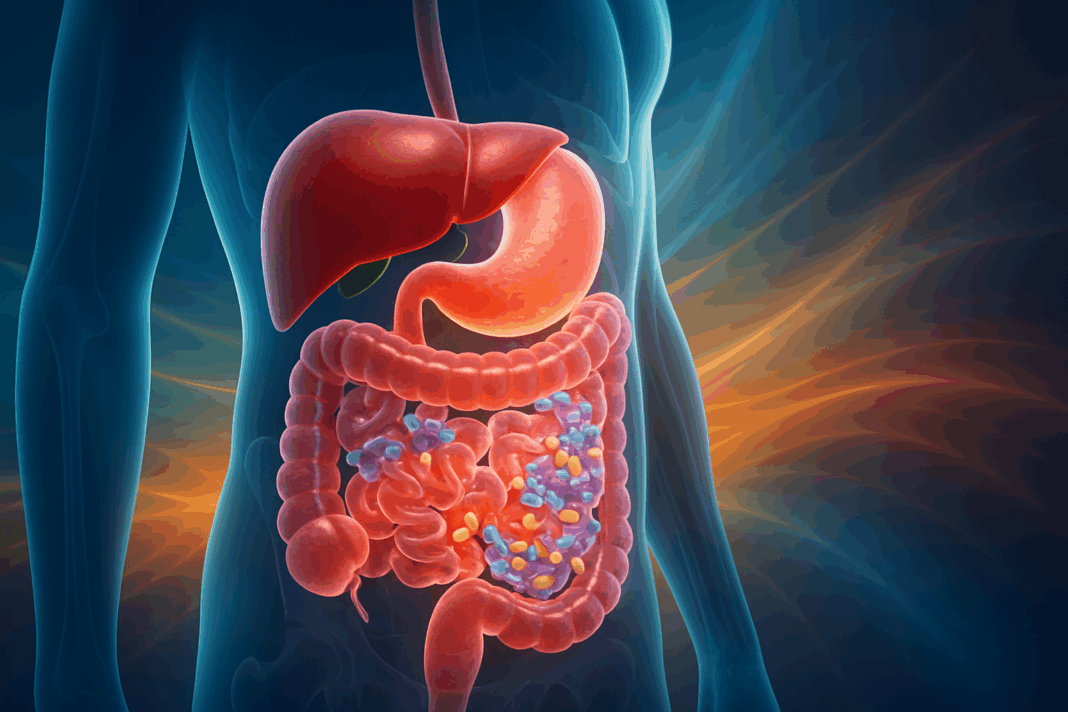Introduction: Unveiling the Wonders Within Our Digestive System
The human digestive system is a marvel of biological engineering, intricately designed to nourish our bodies and maintain internal balance. While most people are aware of its basic functions, fewer appreciate the fascinating complexities hidden within. In fact, when delving into fun facts about the human digestive system, it becomes clear just how sophisticated and vital this system is for overall health. Far beyond simply breaking down food, the digestive system orchestrates an elaborate symphony of chemical reactions, microbial collaborations, and neural communications that keep us alive and thriving. Understanding these lesser-known elements can unlock valuable insights into how we can support a healthier gut and, by extension, better holistic wellness.
You may also like: The Ultimate Guide to Gut Healthy Meals: Best Meals for Gut Health and Nourishing Recipes You’ll Love
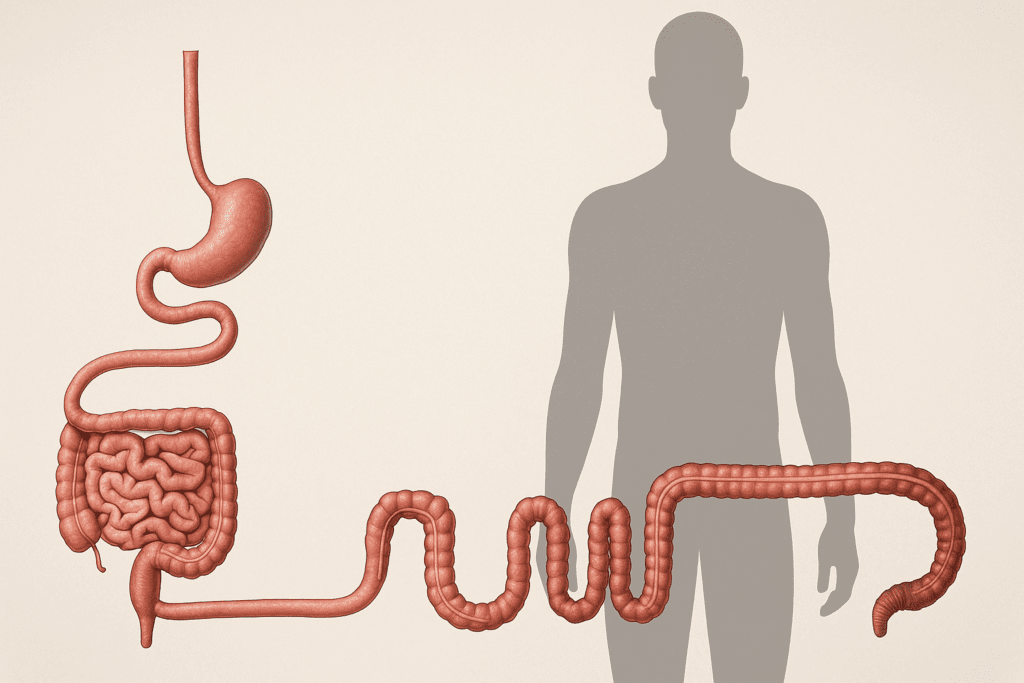
The Surprising Length and Complexity of the Digestive Tract
One of the most surprising fun facts about the human digestive system is its sheer size and complexity. When fully extended, the digestive tract can measure up to 30 feet long, winding its way through various specialized organs each uniquely adapted to facilitate digestion and nutrient absorption. Despite fitting neatly inside the human body, this vast system works around the clock, handling the enormous task of processing the foods we consume. The coordination among the esophagus, stomach, small intestine, large intestine, liver, pancreas, and gallbladder showcases an incredible level of biological sophistication. This intricate design is crucial because each segment of the digestive tract has distinct roles, from enzymatic breakdown to microbiome fermentation, that together ensure our survival. Appreciating the system’s elaborate structure encourages a greater respect for maintaining its health through proper nutrition and lifestyle choices.
The Gut-Brain Connection: More Than Just a Metaphor
Among the most intriguing facts about the digestive system is the profound connection it shares with the brain, often referred to as the “gut-brain axis.” Scientists have discovered that the gut houses an extensive network of neurons, known as the enteric nervous system, which contains more nerve cells than the spinal cord. This neural network allows the gut to operate semi-autonomously, processing sensory information, regulating muscle contractions, and even influencing emotions. Fascinatingly, about 90% of the body’s serotonin, a neurotransmitter linked to mood regulation, is produced in the digestive tract. Consequently, maintaining gut health can have a direct impact on mental well-being, underscoring the importance of holistic supplements and probiotics that nurture the gut microbiome. This intimate relationship between the gut and brain highlights the need for an integrated approach to wellness, combining nutrition, mental health strategies, and digestive care.
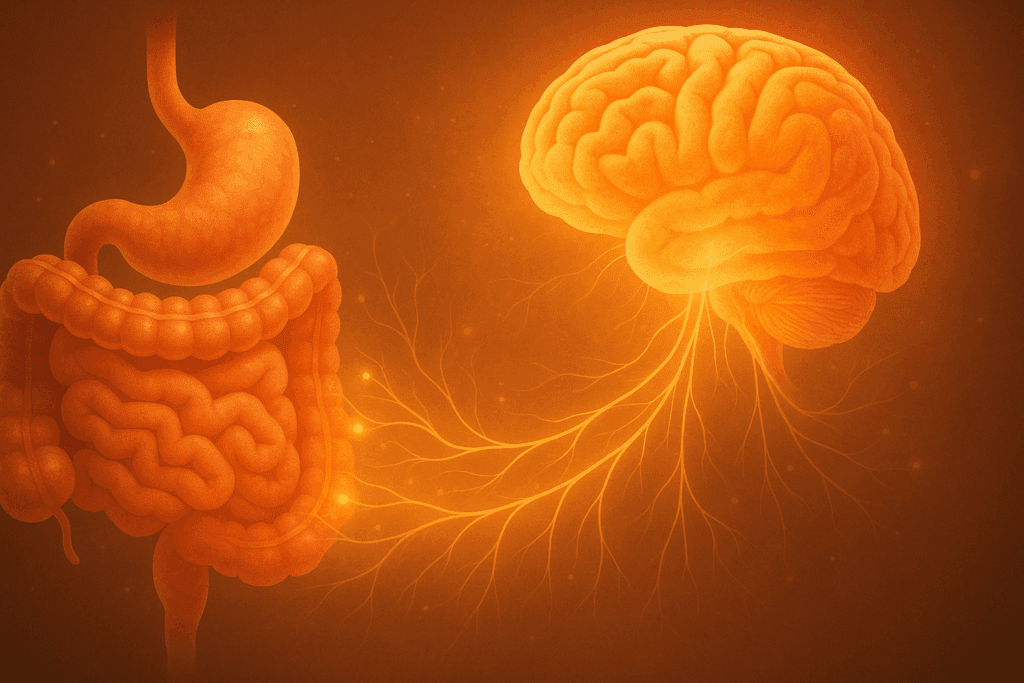
Digestive Enzymes: The Unsung Heroes of Nutrient Absorption
Another of the fun facts about the digestive system involves the critical role of digestive enzymes. These specialized proteins speed up chemical reactions that break down food into absorbable nutrients. Amylase in saliva begins carbohydrate digestion before food even reaches the stomach, while proteases and lipases further dismantle proteins and fats in the stomach and small intestine. Without these enzymes, the body would struggle to extract essential vitamins, minerals, and energy from food, leading to malnutrition even in the presence of adequate dietary intake. Some individuals benefit from supplemental digestive enzymes, particularly those with conditions like pancreatic insufficiency or lactose intolerance. Understanding the importance of these microscopic workers inspires greater attention to the foods and holistic supplements that promote robust enzymatic activity, such as pineapple, papaya, and fermented products.
The Stomach’s Astonishing Acidity
One fascinating element when exploring fun facts about the human digestive system is the stomach’s extreme acidity. Gastric juice, composed primarily of hydrochloric acid, can reach a pH as low as 1.5 to 3.5, comparable to battery acid. This intense environment serves multiple vital functions: it denatures proteins for easier enzymatic breakdown, activates the enzyme pepsin, and destroys harmful pathogens ingested with food. Despite its corrosiveness, the stomach’s mucosal lining protects it from self-digestion, renewing itself every few days to maintain integrity. Disruptions to this delicate balance, such as those caused by chronic stress or excessive NSAID use, can lead to ulcers and digestive distress. Supporting gastric health through mindful eating practices and supplements like deglycyrrhizinated licorice (DGL) can help fortify this critical barrier, preserving digestive function and comfort.
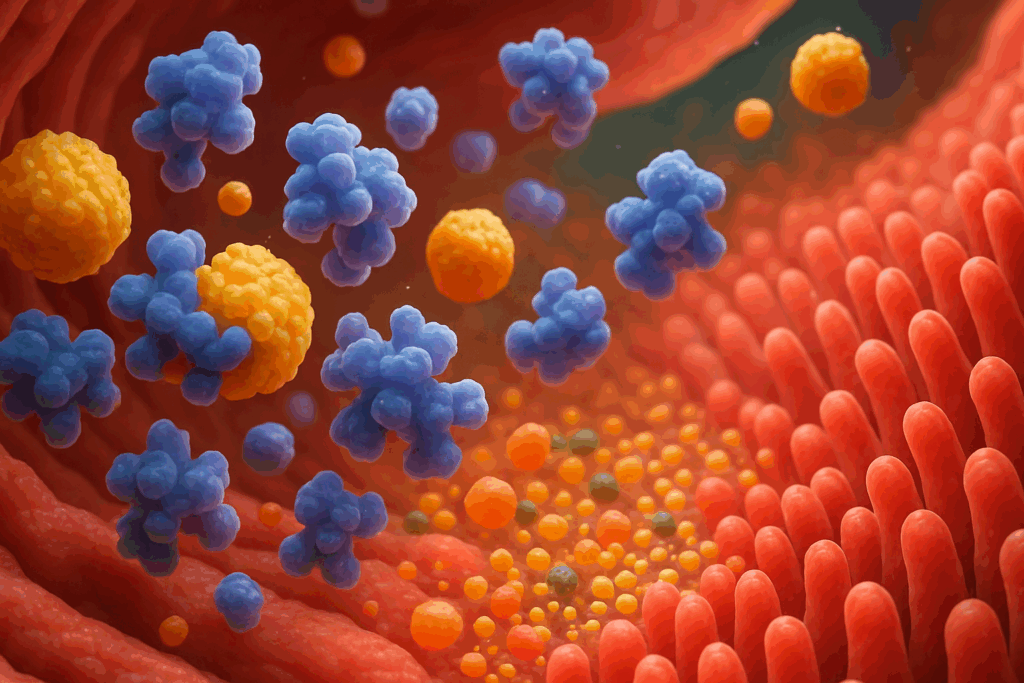
The Microbiome: A Thriving Inner Ecosystem
Perhaps one of the most captivating and important fun facts about the digestive system is the existence of the gut microbiome. This dynamic community of trillions of bacteria, viruses, and fungi plays indispensable roles in digestion, immune regulation, and even mental health. The microbiome ferments indigestible fibers into beneficial short-chain fatty acids like butyrate, synthesizes essential vitamins such as K2 and B12, and serves as a frontline defense against pathogenic invaders. Recent research has linked microbiome diversity to resilience against conditions like inflammatory bowel disease, obesity, and depression. Maintaining a thriving microbiome requires a diet rich in prebiotic fibers, such as those found in onions, garlic, and asparagus, and the incorporation of probiotic-rich foods like yogurt, kefir, and sauerkraut. Holistic supplements that combine prebiotics and probiotics can further bolster microbial balance, revealing another secret to a healthier gut.
Fun Facts About the Human Digestive System: The Speed of Digestion
When considering fun facts about the human digestive system, the variability of digestive speed is particularly noteworthy. Digestion time can range from 24 to 72 hours, depending on the type of food consumed, individual metabolism, and overall gut health. Simple carbohydrates like fruit may transit relatively quickly, while complex meals rich in fat and protein take longer to process. Fiber plays a dual role by both slowing digestion to enhance nutrient absorption and speeding waste elimination to prevent toxin buildup. Hydration, physical activity, and the integrity of the gut microbiota all influence transit time, affecting comfort and nutrient availability. Monitoring these factors and making intentional dietary adjustments can optimize digestive efficiency, providing a tangible pathway to better health and vitality.
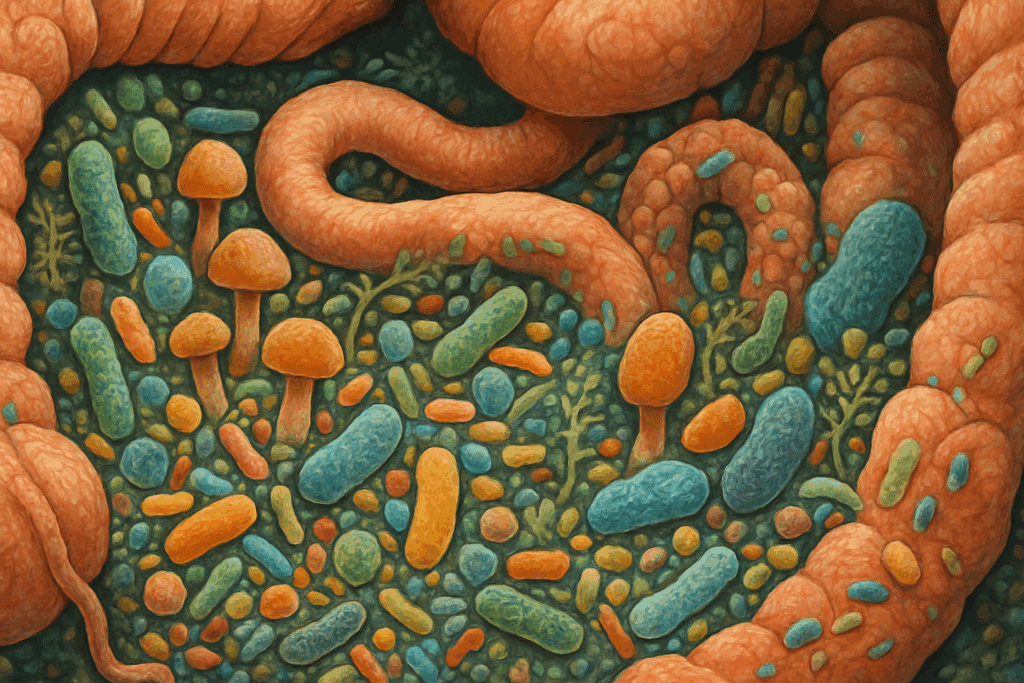
The Liver’s Hidden Digestive Role
Although often overlooked in discussions of digestion, the liver is indispensable to the process. It produces bile, a substance stored in the gallbladder and released into the small intestine to emulsify dietary fats. Without bile, fat digestion would be inefficient, leading to nutrient deficiencies and gastrointestinal symptoms. The liver also detoxifies harmful substances absorbed from the intestines, protecting systemic health. Supporting liver function through antioxidant-rich foods like beets, leafy greens, and turmeric, as well as considering holistic supplements such as milk thistle, can enhance digestive and overall well-being. Recognizing the liver’s vital contributions deepens our appreciation for the interconnectedness of digestive organs and highlights another dimension of gut health maintenance.
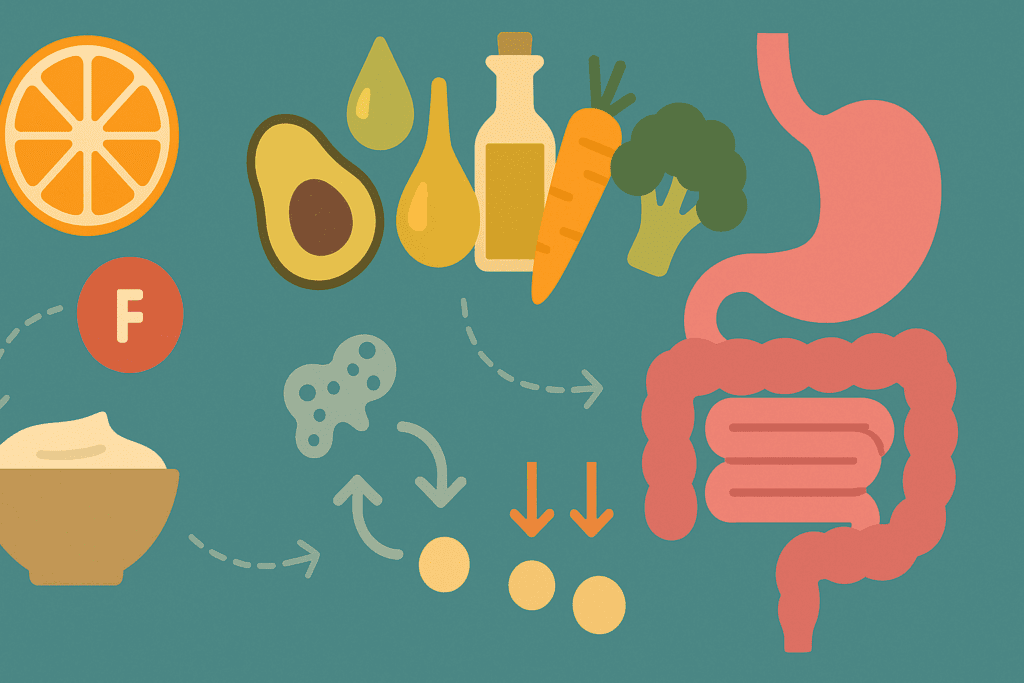
Fun Facts About the Human Digestive System: Saliva’s Digestive Powers
Often underestimated, saliva plays a pivotal role in digestion, a truth underscored by several interesting facts about the digestive system. Beyond lubricating food for easier swallowing, saliva initiates carbohydrate digestion through the enzyme amylase. It also contains antimicrobial compounds that reduce oral bacterial load and protect against infection. Saliva even acts as a buffering agent, neutralizing acids and maintaining oral pH balance. Stress, dehydration, and certain medications can impair saliva production, negatively impacting both oral and digestive health. Simple practices such as chewing food thoroughly, staying hydrated, and managing stress can enhance saliva production, setting the stage for more efficient digestion and nutrient assimilation from the very first bite.
The Small Intestine: A Nutrient Absorption Powerhouse
Among the lesser-known facts about the digestive system is the small intestine’s extraordinary absorptive capacity. Despite being only about 20 feet long, its inner surface area is equivalent to that of a tennis court, thanks to the presence of villi and microvilli that dramatically increase its surface area. These microscopic structures facilitate the efficient uptake of nutrients into the bloodstream. Any compromise to the integrity of the small intestine, such as from celiac disease or chronic inflammation, can result in malabsorption and widespread health issues. Ensuring intestinal health involves a combination of a balanced, nutrient-dense diet, targeted supplementation with nutrients like L-glutamine and zinc, and proactive gut microbiome support. A healthy small intestine is central to overall wellness, affirming the importance of proactive digestive care.
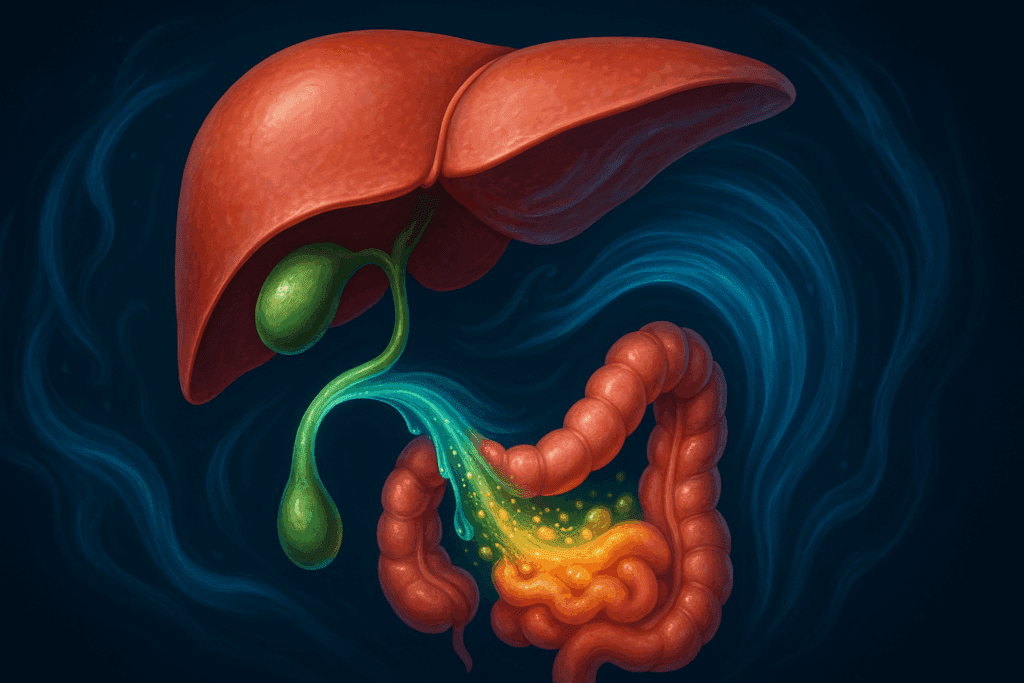
Fun Facts About the Human Digestive System: The Colon’s Fermentation Factory
Another of the compelling fun facts about the human digestive system is the colon’s role as a fermentation powerhouse. While most nutrient absorption occurs in the small intestine, the colon is tasked with reclaiming water, electrolytes, and synthesizing vital compounds through microbial fermentation. Beneficial bacteria ferment undigested fibers, producing short-chain fatty acids that nourish colonocytes, regulate inflammation, and fortify the gut barrier. Disruptions to this process, such as through low-fiber diets or antibiotic overuse, can impair colonic health and systemic immunity. Prioritizing fiber-rich foods and maintaining a diverse microbiome through diet and supplementation is crucial for optimizing this final stage of digestion and unlocking the secrets to a healthier gut.
FAQ: Exploring Fun Facts About the Human Digestive System and Unlocking Gut Health Secrets
How Do Fun Facts About the Human Digestive System Inspire Better Gut Health Practices?
Learning fun facts about the human digestive system can deeply reshape how we approach gut health on a daily basis. For instance, understanding the vital role of digestive enzymes may inspire individuals to seek out enzyme-rich foods like papaya and pineapple or consider supplementation under professional guidance. Moreover, knowing that the gut produces the majority of the body’s serotonin can encourage more people to prioritize a fiber-rich diet that nourishes beneficial gut bacteria. Recognizing these facts about the digestive system fosters a proactive mindset toward nutrition, stress management, and hydration. In turn, this new awareness promotes sustainable lifestyle changes that benefit overall well-being.
What Are Some Lesser-Known Facts About the Digestive System’s Relationship With Sleep?
Interestingly, emerging research highlights the digestive system’s significant role in sleep regulation, an area often overlooked. The gut microbiome influences the production of melatonin and other sleep-regulating neurotransmitters, revealing another layer of the gut-brain connection. Disruptions to the microbiome, such as those caused by poor diet or excessive antibiotic use, may contribute to sleep disorders. Maintaining a healthy gut ecosystem through fermented foods and prebiotics could potentially improve sleep quality. These interesting facts about the digestive system suggest that tending to gut health might be an effective strategy for addressing insomnia and sleep disturbances.
How Can Fun Facts About the Digestive System Support Mental Wellness Strategies?
Fun facts about the digestive system extend far beyond digestion and offer compelling insights into mental wellness strategies. The gut microbiome actively communicates with the brain via the vagus nerve, releasing neurotransmitters that impact mood, stress responses, and cognitive function. Incorporating probiotic foods, reducing dietary inflammatory triggers, and practicing mindful eating can all enhance the gut-brain axis. Additionally, emerging studies suggest that specific strains of probiotics may alleviate symptoms of anxiety and depression, offering promising adjunct therapies for mental health. Understanding these connections empowers individuals to adopt dietary and lifestyle interventions that harmonize both gut and mind health.
What Role Does Hydration Play According to Fun Facts About the Human Digestive System?
Among the more practical fun facts about the human digestive system is the crucial role hydration plays in optimizing digestion. Water facilitates the smooth passage of food through the digestive tract and aids in the production of saliva, gastric juices, and mucus. Insufficient hydration can lead to slowed digestion, constipation, and even an imbalance in gut flora. Experts recommend sipping water throughout the day rather than consuming large amounts at once to better support digestive function. Recognizing this foundational need helps reinforce hydration habits that enhance gut health naturally.
Are There Surprising Fun Facts About the Digestive System’s Role in Immunity?
Absolutely, one of the most impactful facts about the digestive system is its role as a key player in immune defense. Approximately 70% of the body’s immune cells reside within the gut-associated lymphoid tissue (GALT). This strategic positioning allows the digestive system to act as a sentinel, detecting and neutralizing pathogens before they spread systemically. Recent research also highlights how a diverse gut microbiome helps “train” the immune system to distinguish between harmful invaders and harmless substances. Maintaining microbial diversity through varied dietary choices and holistic supplements may, therefore, strengthen immune resilience in profound ways.
What Fun Facts About the Human Digestive System Can Help Improve Nutrient Absorption?
One fascinating insight from fun facts about the human digestive system involves the concept of “food synergy.” Certain food combinations, like pairing vitamin C-rich fruits with iron-rich plant foods, enhance nutrient absorption. Similarly, consuming healthy fats alongside fat-soluble vitamins like A, D, E, and K facilitates their uptake. Understanding how enzymes, stomach acid, and gut flora interact to break down food can also inspire strategic meal planning. Beyond simply eating a balanced diet, applying these principles can significantly boost nutrient availability and, by extension, overall health. These nuanced strategies elevate everyday nutrition into a powerful tool for wellness.
How Do Fun Facts About the Digestive System Shed Light on Personalized Nutrition?
Fun facts about the digestive system increasingly point to the importance of personalized nutrition approaches. Factors like genetic variations, microbiome composition, and digestive enzyme activity differ widely between individuals, influencing how effectively they process different foods. Personalized gut health programs now analyze microbiome profiles to recommend specific probiotics, fiber types, and dietary patterns. For instance, someone with low butyrate-producing bacteria might benefit from increased resistant starch intake. These insights underline the emerging trend of precision nutrition, where understanding one’s unique digestive landscape becomes key to optimizing health outcomes.
Are There Emerging Trends Related to Fun Facts About the Human Digestive System?
Yes, current trends inspired by fun facts about the human digestive system include innovations like postbiotic supplements and gut-focused biohacking techniques. Postbiotics, the beneficial byproducts of microbial fermentation, are gaining attention for their role in enhancing gut barrier function and modulating immunity. Meanwhile, gut microbiome sequencing kits allow individuals to tailor their diets and supplement regimens based on real-time microbial data. Advances in psychobiotics, probiotics aimed specifically at improving mental health, also illustrate the growing integration of gut science into holistic health strategies. These trends reflect a deeper societal recognition of the gut’s central role in overall well-being.
What Interesting Facts About the Digestive System Can Help Prevent Digestive Disorders?
Understanding interesting facts about the digestive system can offer powerful preventative strategies against digestive disorders. For example, knowing that prolonged stress can impair gut motility and microbiome balance emphasizes the importance of stress management techniques like meditation or yoga. Learning that certain polyphenols in foods like berries and green tea support microbial diversity provides a dietary avenue for protection. Regularly incorporating fermented foods, fiber, and anti-inflammatory nutrients can create an environment where harmful bacteria struggle to thrive. These preventative insights empower individuals to take control of their gut health before problems arise.
How Can Fun Facts About the Human Digestive System Influence Future Healthcare Approaches?
Looking forward, fun facts about the human digestive system are shaping a new era of integrative healthcare. Medical professionals increasingly acknowledge the gut’s role in not just gastrointestinal conditions but also metabolic, neurological, and autoimmune diseases. Future healthcare models may incorporate microbiome analysis as a routine diagnostic tool and prioritize gut-centered therapies early in disease management. Interdisciplinary collaborations between nutritionists, gastroenterologists, and mental health specialists reflect this evolving paradigm. Recognizing the digestive system’s centrality encourages more holistic, preventive, and personalized approaches to health, benefiting individuals and healthcare systems alike.
Conclusion: Embracing the Complex Beauty of Our Digestive System
Reflecting on these fascinating facts about the digestive system reveals a world of complexity and wonder that too often goes unappreciated. From the astonishing length of the digestive tract to the intricate neural communications of the gut-brain axis, each aspect plays a crucial role in sustaining life and promoting holistic wellness. Fun facts about the human digestive system highlight not just quirky trivia but essential truths that, when understood, can empower individuals to make informed choices for better health. Embracing dietary practices that support digestive enzymes, nurture the microbiome, and protect organ integrity can profoundly impact both gut and systemic health. Through an integrated approach that combines evidence-based nutrition, mindful lifestyle choices, and strategic supplementation, we can honor the incredible design of our digestive systems and cultivate a vibrant, resilient state of well-being that extends from the inside out.
Further Reading:
19 Fun Facts About the Digestive System

